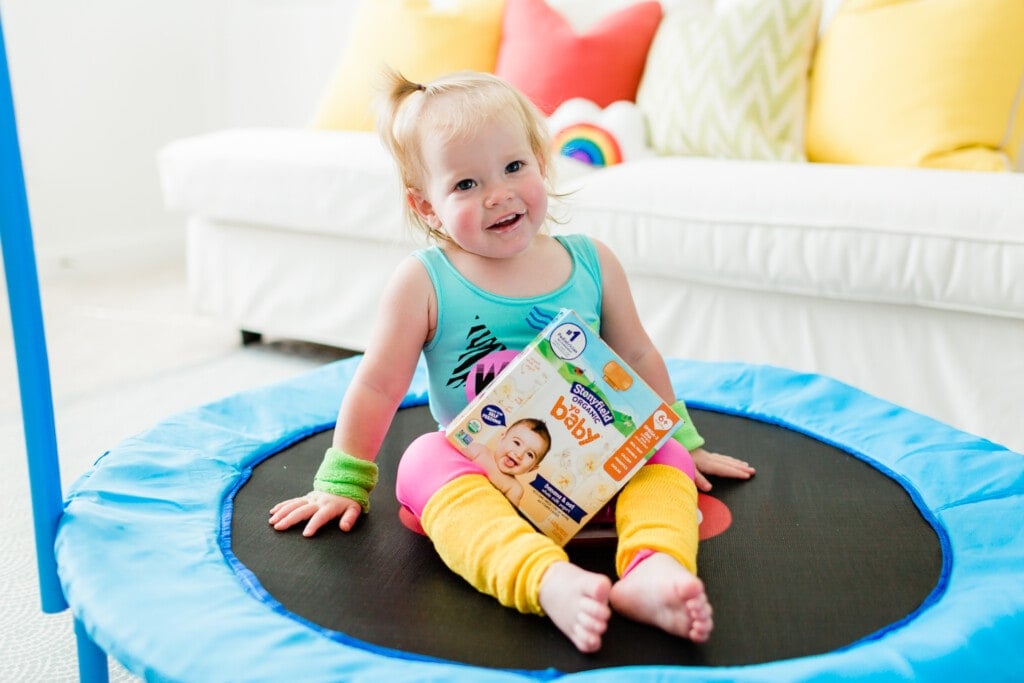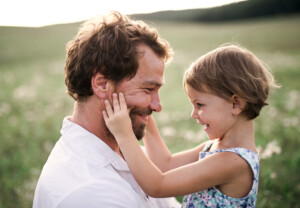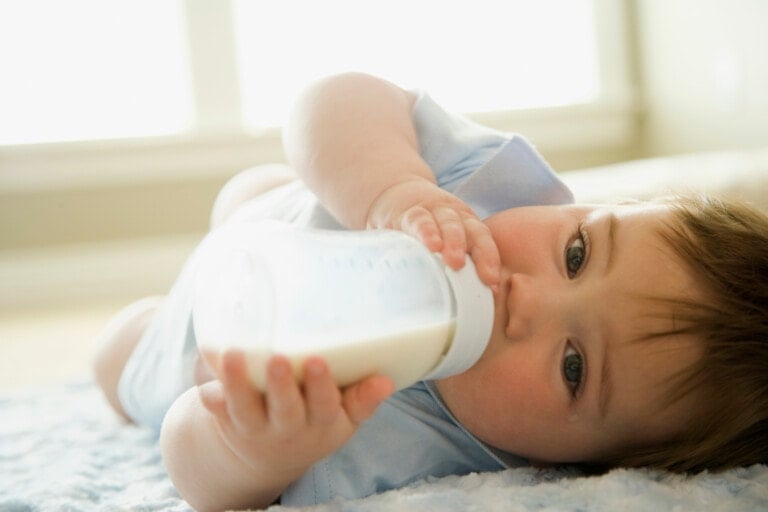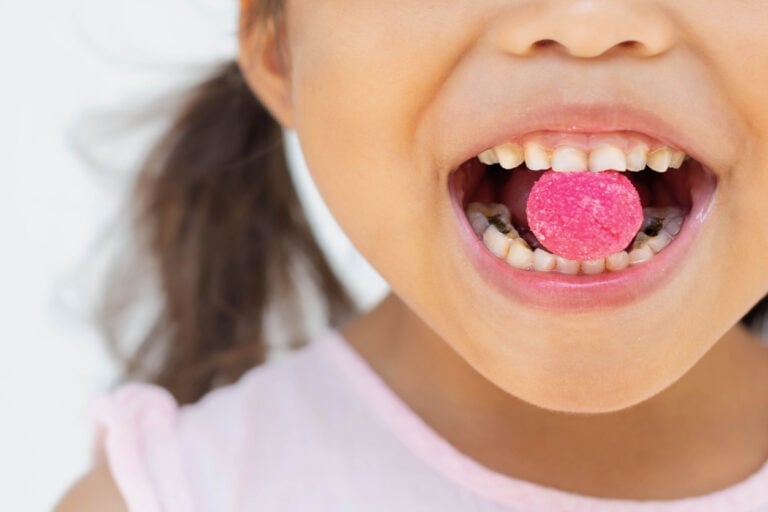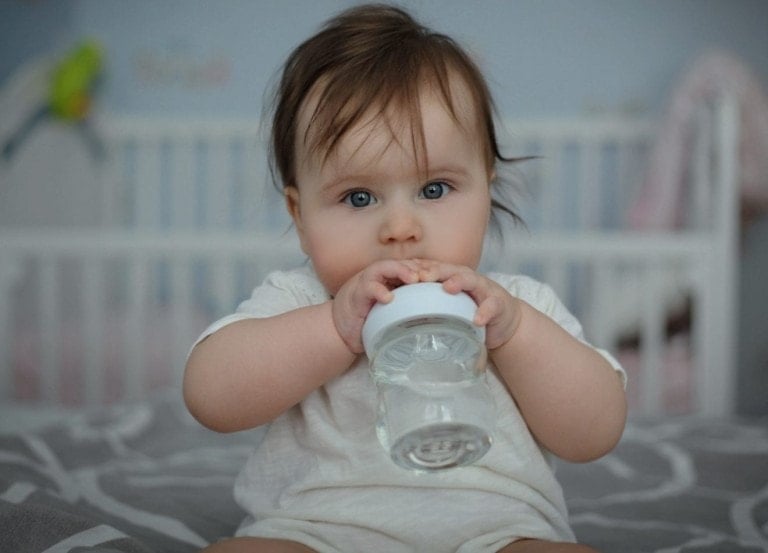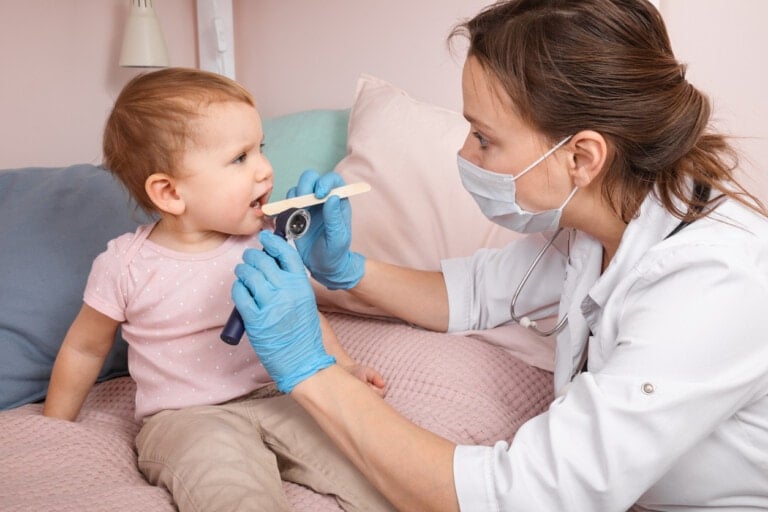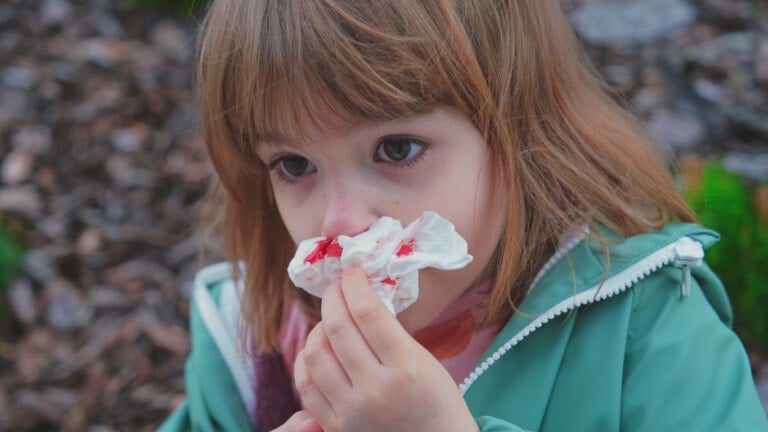Nothing is more worrisome than when your little one is under the weather. The past few years have put us all on high alert at the sign of any illness, especially when it comes to our children. As parents, we want to do everything we can to keep our kids safe and healthy. And as the dreaded cold and flu season approaches, we want to get ahead of illnesses. Thankfully, adopting some simple habits can help keep our babies and kids healthy and happy this cold and flu season.
Essential Habits to Keep Your Baby Healthy
Let’s get back to the basics. Those healthy habits you have heard your whole life can help protect your baby and support their health all season long. And being proactive in preventing illness doesn’t have to be complicated. Let’s break down a few healthy habits that can significantly impact the health of not only your baby but your whole family.
1. Hand Hygiene
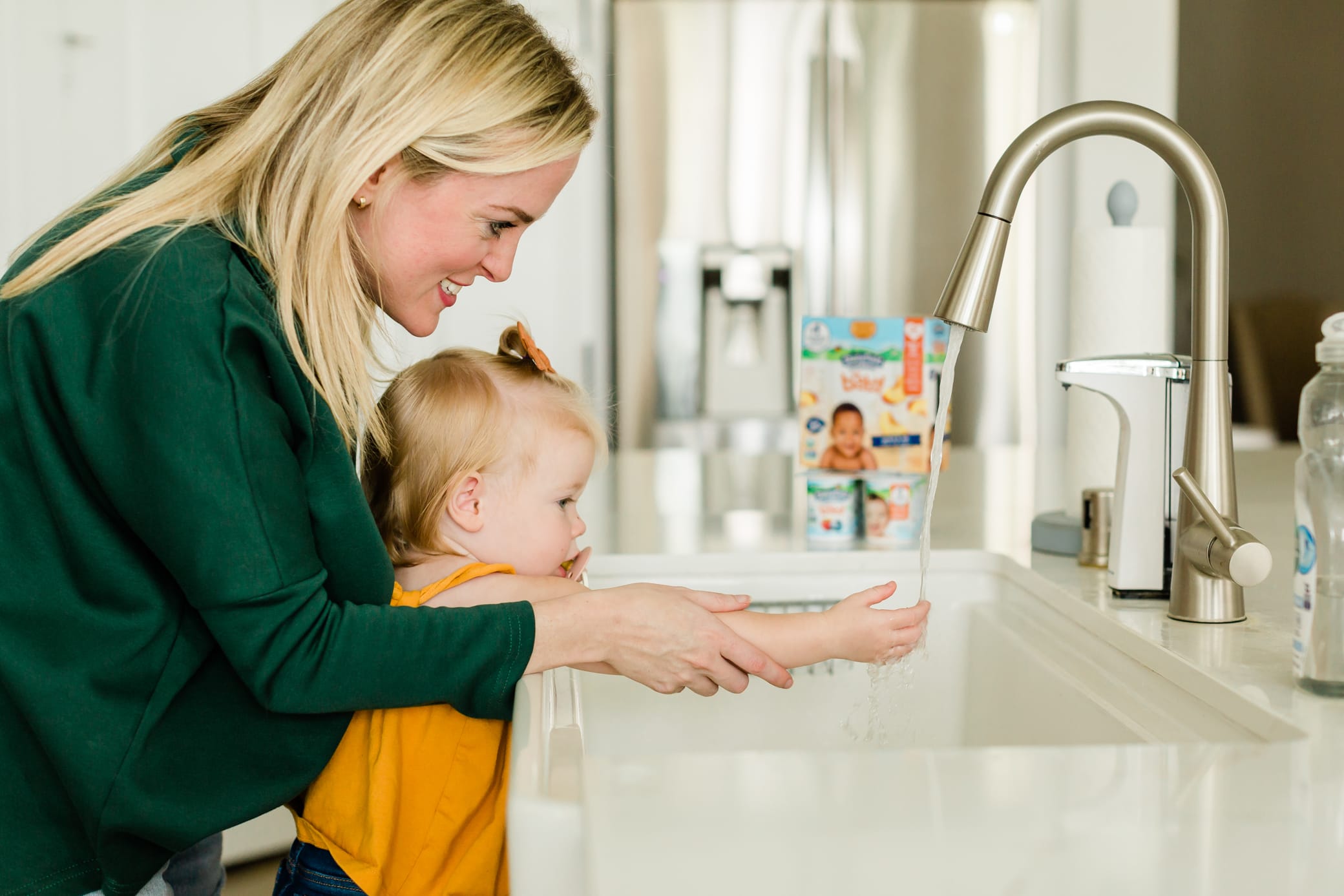
If the past two years have taught us anything, it’s that hand hygiene is essential. Simply washing your hands can help combat disease and prevent you from passing on germs, like the cold and flu, to your baby or child. You will reduce germs and protect your baby by developing everyday habits to ensure your hands are clean.
The general guidance for hand washing recommends always washing your hands after using the restroom, when you are around someone who is ill or you are sick, before you eat, and when returning home from being out and about. In addition, babies love to put their hands in their mouths and all over their faces. This makes it extremely important to ensure you wash your hands before touching your precious little one.1
Wash Hands Effectively
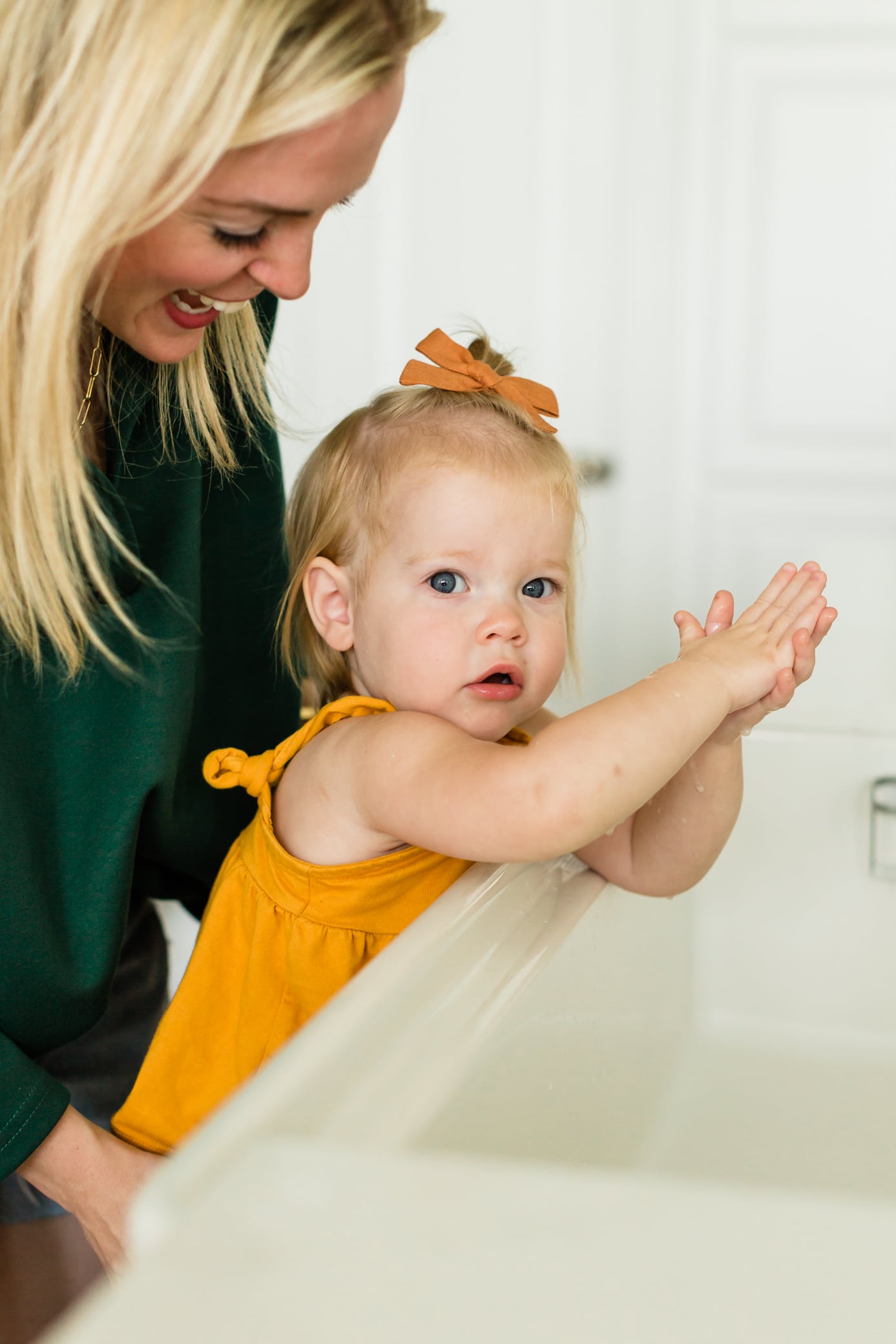
Properly washing your hands is very important. Simply wetting your hands with water is not effective in cleaning your hands. To combat germs successfully, you will need to scrub your hands with soap and warm water for 20 seconds. It is vital to make sure you are scrubbing every area on your hands and between your fingers. Once scrubbing is complete, rinse hands and dry.1
Younger children in the home may need assistance washing their hands to ensure they are correctly scrubbing. A great way to teach younger children how long they need to clean their hands is by telling them to sing the Happy Birthday song two times or any 20-second song while scrubbing.
2. Eat a Well-Balanced Diet
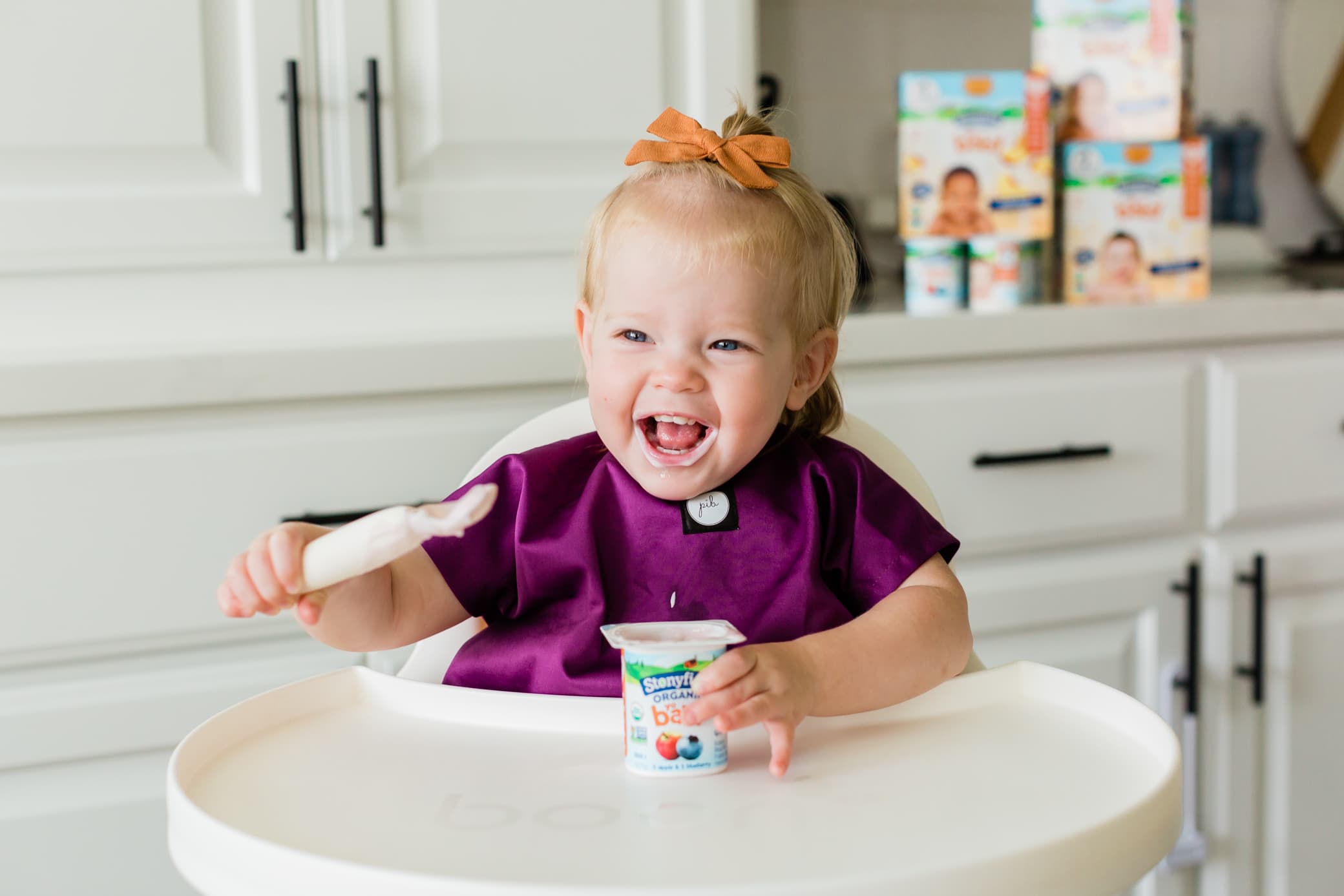
Overall preventative health starts with good nutrition. Food fuels our bodies, and good nutrition can lead to more robust immune systems, including in babies.2
Let’s start with breastfeeding. Breastfeeding is a powerful way to give your little one’s immune system the support it needs to fight off germs. The American Academy of Pediatrics (AAP) recommends exclusively breastfeeding your child until six months.3 Breast milk provides your baby with all the nutrients they need for their health and development during these first few months of life. By giving a baby breast milk, a mother can pass on antibodies she has developed from past illnesses and those she is currently fighting, as well as give her baby greater protection from gastrointestinal infections (GI).4 This points to the importance of “gut health.”
Did you know 70-80% of our body’s immune cells come from our gut?5 This number drives home the importance of keeping a healthy gut microbiome to help strengthen our immune system and keep it functioning correctly. Good nutrition and probiotics are helpful ways to keep your baby’s gut health in check.6
Encourage ‘Good Bacteria’
Probiotics are “good” bacteria that help balance the gut’s microbiome. Because a healthy gut can equal a well-functioning immune system, probiotics can be an excellent addition to your baby’s diet.6 Breast milk is a great source of probiotics for breastfeeding babies.4 If you’re introducing an older baby to new solid foods, yogurt is an excellent source of probiotics.6 A favorite around here is Stonyfield Organic YoBaby yogurt.
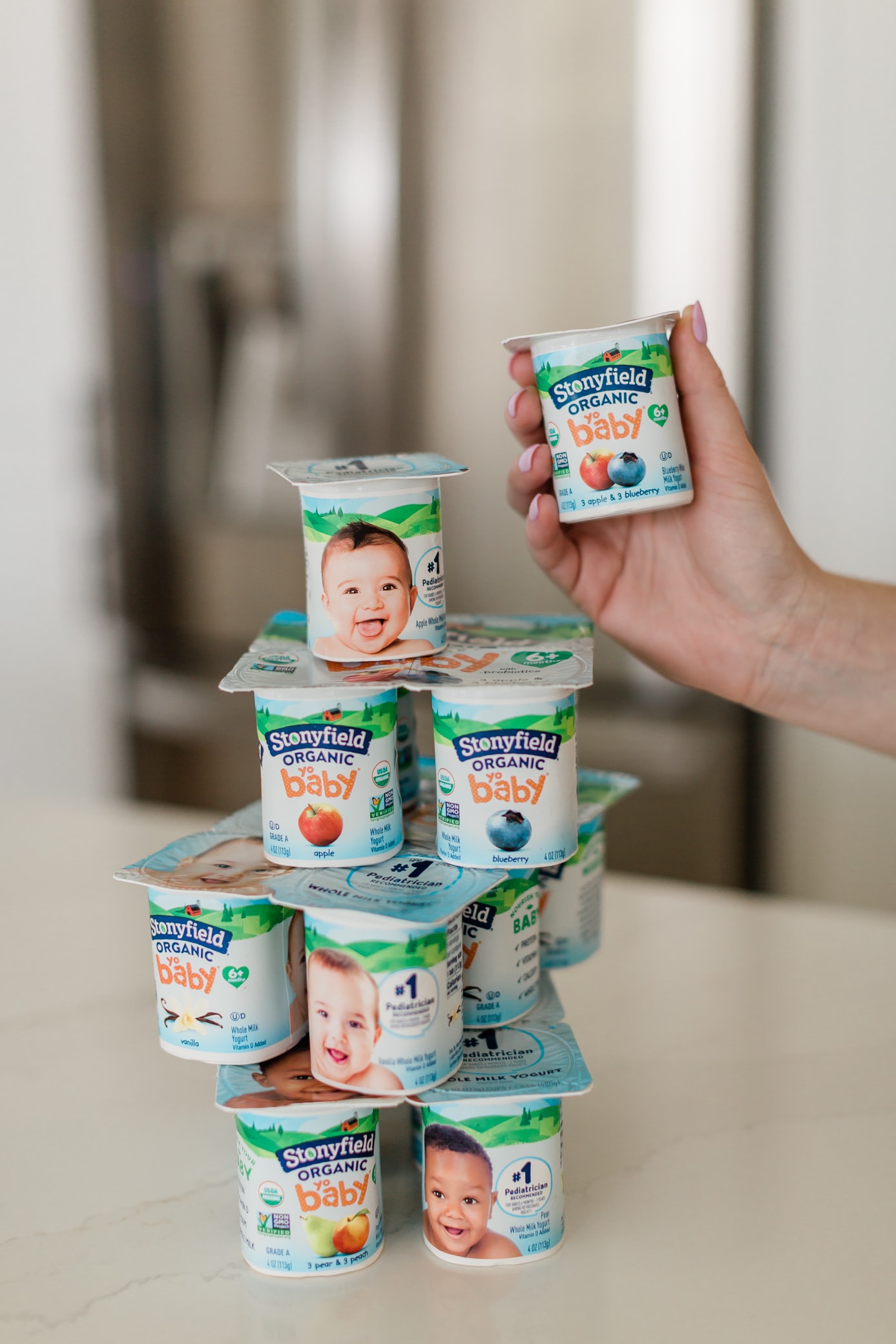
Stonyfield YoBaby yogurts are the perfect first yogurt to introduce to your baby. We all love a good organic yogurt, and Stonyfield is just that! Knowing they make their yogurt without using toxic and harmful pesticides, artificial hormones, or GMOs gives us peace of mind. The Stonyfield YoBaby yogurt line offers yummy, flavored options, and I love that they have a plain yogurt option. The plain YoBaby is a great choice when first introducing yogurt to your baby. YoBaby is made with organic whole milk and is a source of protein, vitamin D, calcium, and the probiotic BB-12®.
By starting your baby off with a nutritious diet, you can help instill healthy eating habits for the future and keep them healthy this cold and flu season.
3. Clean and Disinfect
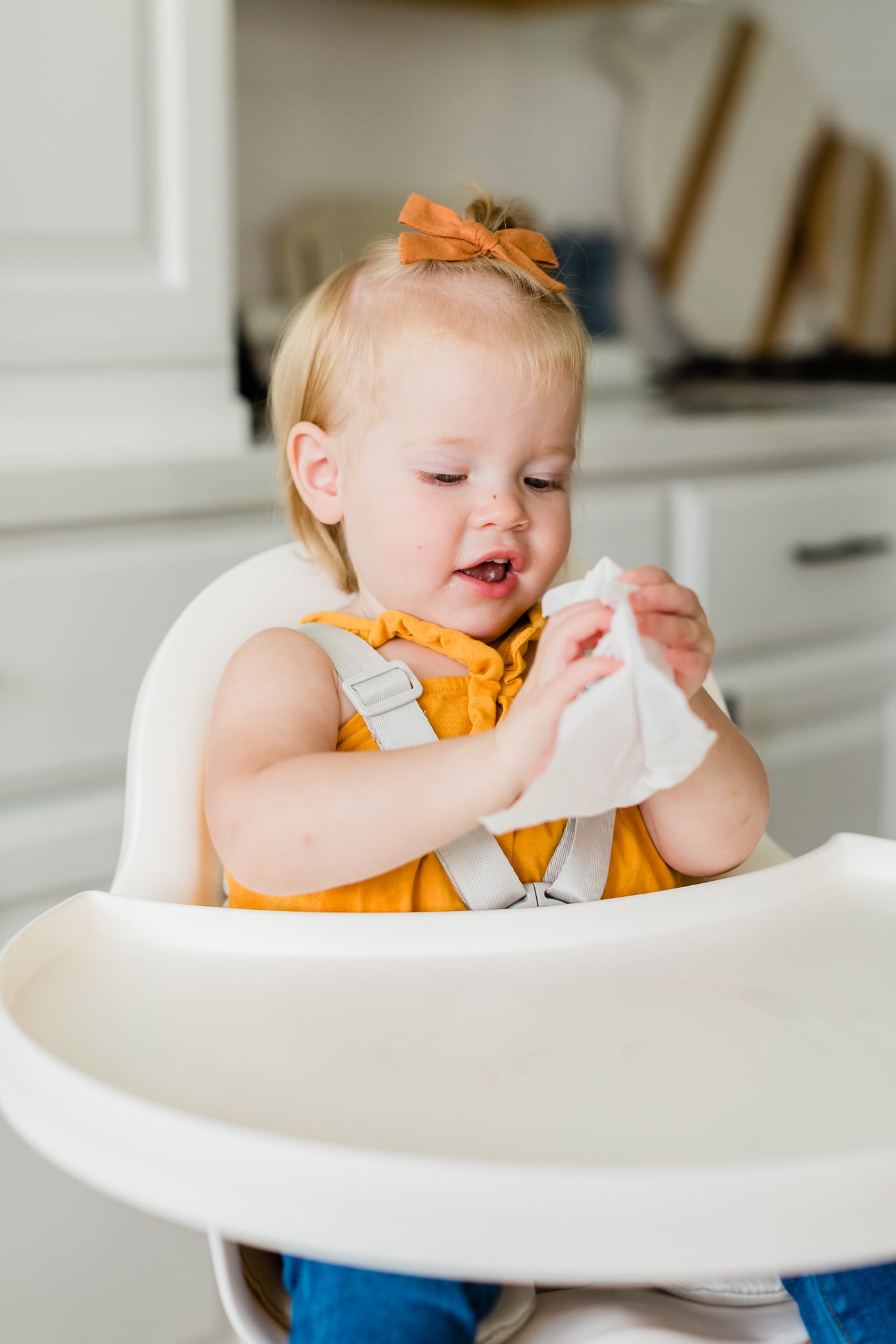
Babies and toddlers love to put anything and everything they can get their hands on in their mouths, including their hands. It is crucial to keep their environment clean to decrease the risk of exposing them to germs that may cause an illness. Parents should give particular attention to toys, pacifiers, bottle parts, and frequently touched surfaces the baby is around.7
The best way to clean surfaces is to use hot, soapy water and a disinfectant. Dry the area, and finish by washing your own hands. Always use caution when using cleaning products around children, especially disinfectants.8 Cleaning and disinfecting will be essential if another family member is ill. Make sure to frequently clean areas your baby is in contact with to minimize the risk of exposure to the illness, like the cold and flu.7
4. Exercise
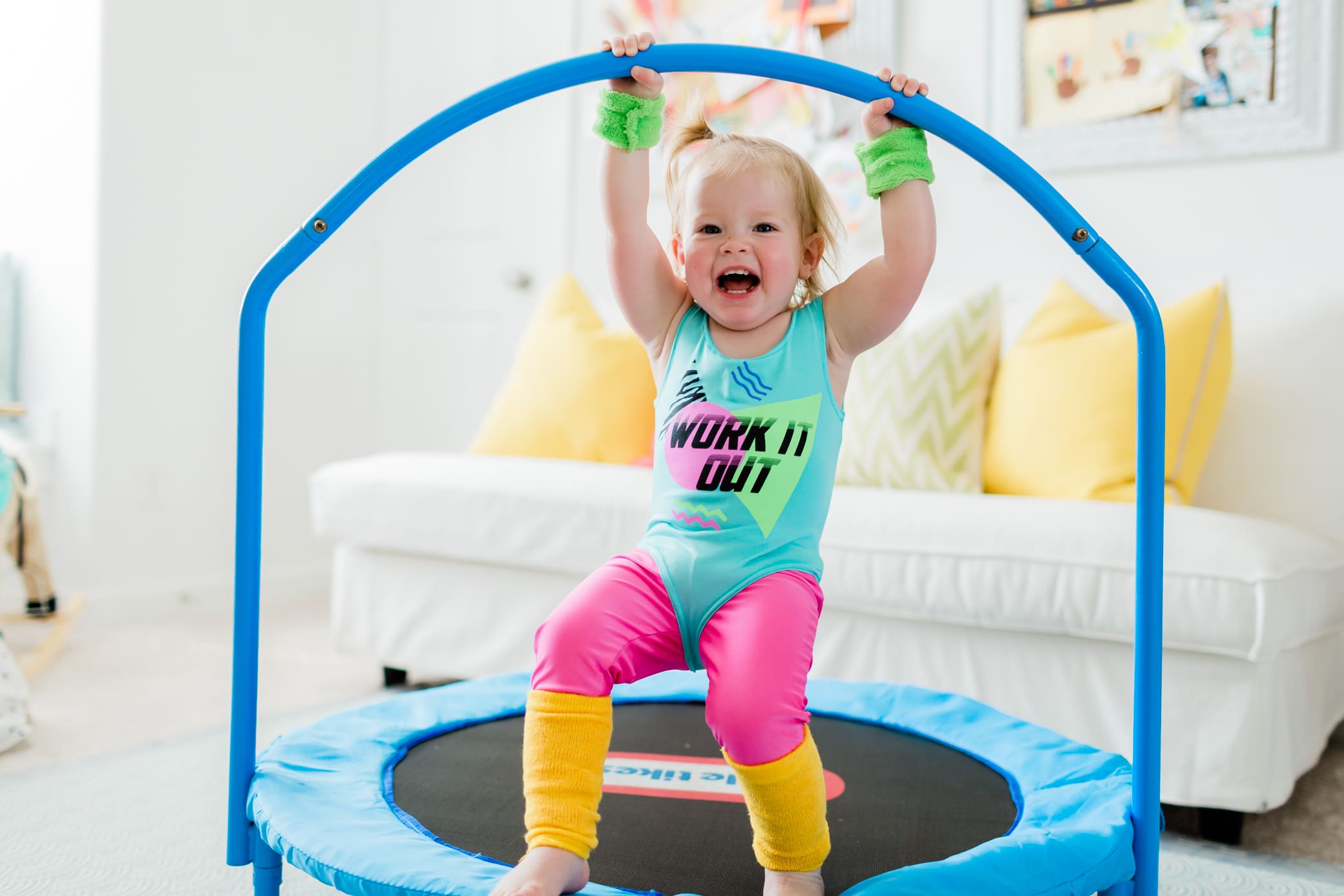
Physical activity is so important for your children’s health. You might think, exercise for my baby? The AAP recommends physical activity each day, even for your baby. This physical activity can be obtained through tummy time when your little one is awake.14
Make tummy time fun for your little one! Let them try to reach you, place toys around for them to grab, or lie on your back with your baby on your chest. Make this a bonding time for you and your baby.15 As your baby grows, keep making movement and exercise fun for them, this will help instill healthy habits for their future.
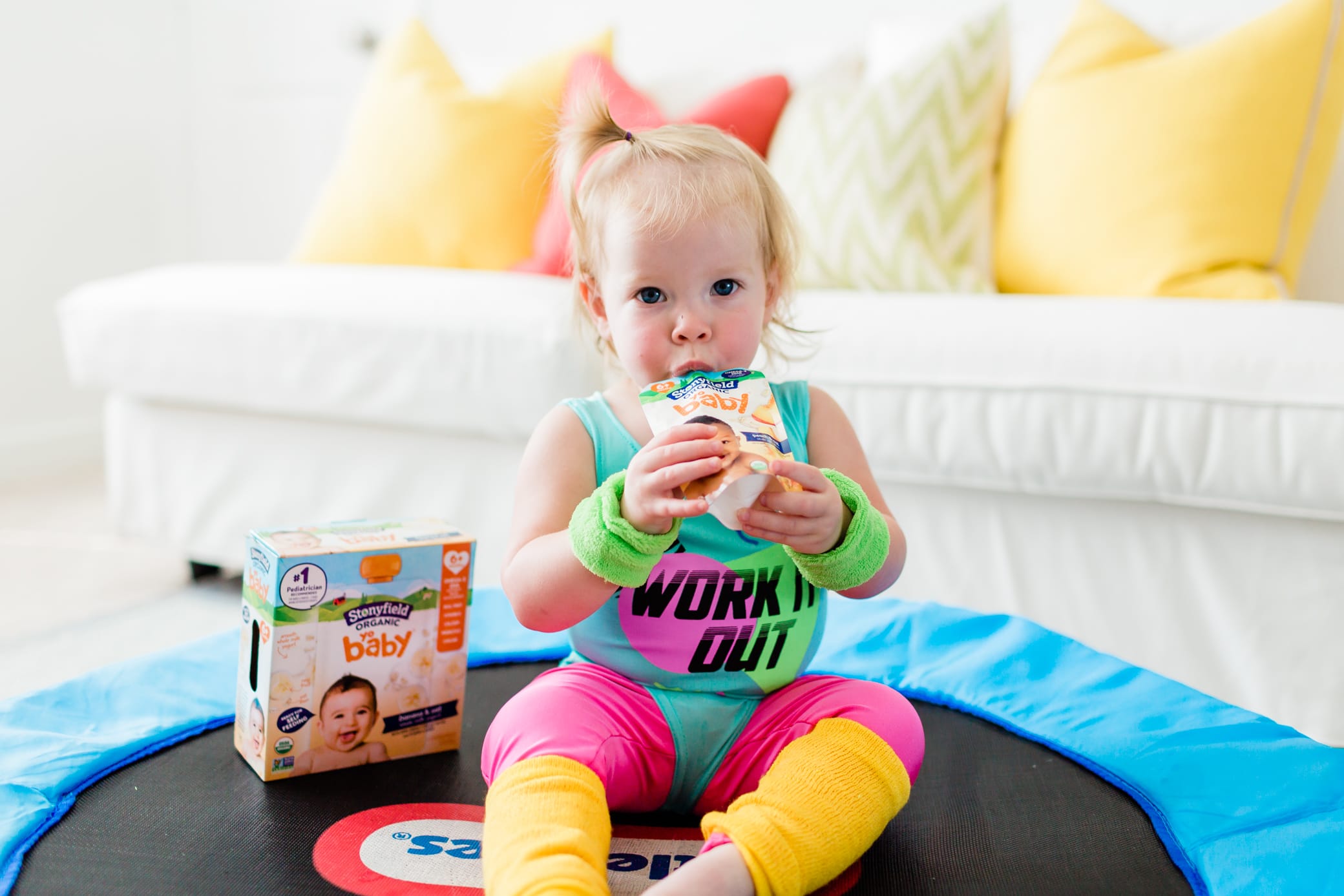
5. Make Sure They Get Sleep
The simple act of sleep is crucial for your little one’s health and development. Although babies do not have regular sleep cycles until they are about six months old, the average time a newborn is asleep is around 16 to 17 hours each day.10
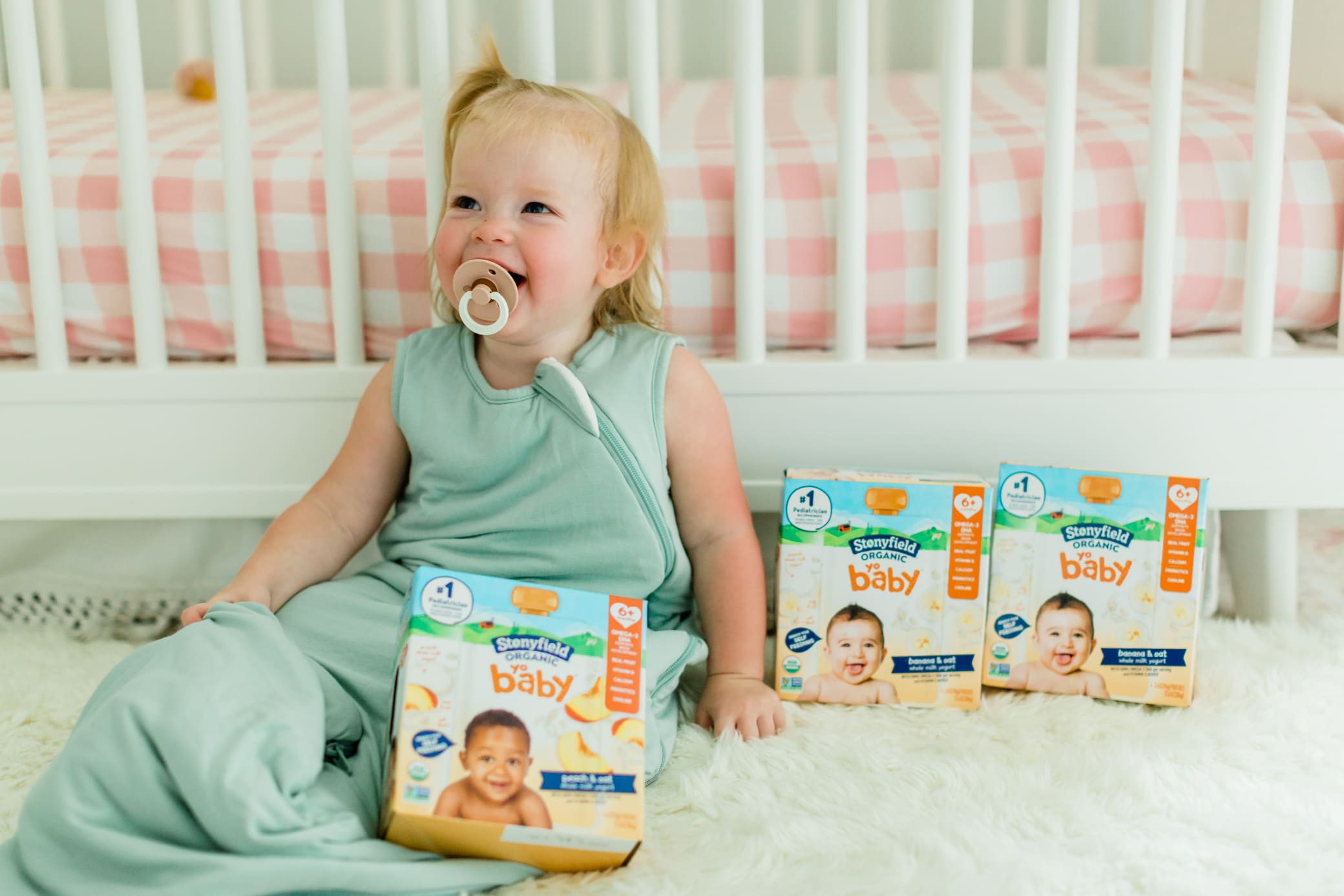
Sleep gives the body time to heal, relax, and refresh. When your body does not get enough sleep, it cannot produce essential protectant factors to help fight off illness.13 As a result, when your growing children do not get enough sleep over several days, it can cause weakness in their immune systems.12 When your child is exposed to a virus, they have a greater chance of becoming ill. Sleep’s importance continues when your child is sick. They need rest to heal and fight off infectious diseases.13
Recommended Hours of Sleep By Age
The American Academy of Pediatrics recommends the following amount of hours of sleep depending on a child’s age:
Infants 4 to 12 months old: 12 to 16 hours (including naps)
Toddlers 1 to 2 years old: 11 to 14 hours (including naps)
Preschool 3 to 5 years old: 10 to 13 hours (including naps)13
Sometimes your children’s sleep seems out of your control. Here are a few tips for your older children to help make sleep a priority and a bit easier to obtain in your home.
- Be active during the day.11
- Set a regular bedtime.12
- Create a bedtime routine. An example might be bath time, brush teeth together, read a book, get tucked in.12
- Create an environment that supports sleep.11 For example, limit the number of toys in your child’s bed, use darkened curtains, turn on a sound machine, remove the television from the bedroom, and control the room temperature.
6. Be an Advocate for Your Baby
There is nothing more exciting than a new precious addition to the family. When your family and friends ask when they can see your new bundle of joy, take a deep breath and think about what makes you most comfortable and what is safest for your baby.
During this exciting but overwhelming time, it will be helpful if you and your partner are on the same page. Creating simple guidelines or expectations together for visitors can relieve some pressure. Some examples of visitor guidelines could include:
- Avoid having visitors who have symptoms of illness or have been around close contact with someone sick.
- Say no to kisses, especially on the baby’s face and head.
- Visitors should wash their hands when entering your home.
Talking to your older children about ways they can help keep their new brother or sister safe is essential. Some good habits to work with them on include washing hands when returning home and before touching the baby, avoiding touching the baby’s hands, face, and head, and practicing coughing and sneezing into a tissue or their sleeve when they are ill.7
Let’s protect our babies and kids this cold and flu season by implementing simple, healthy habits to stop germs before they can make us sick. You got this, mama, so keep up the good work. You are doing fantastic!














